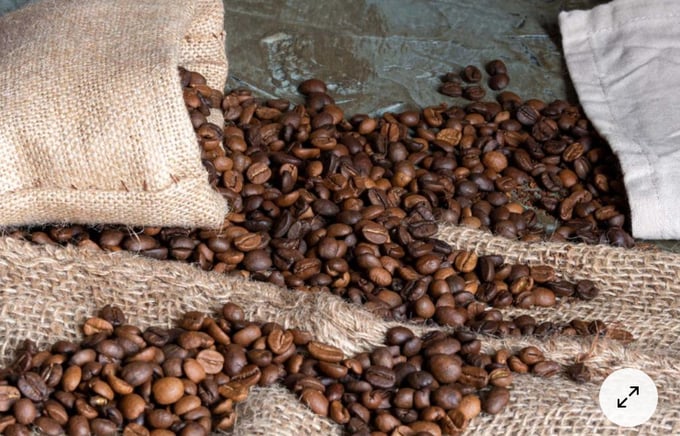November 22, 2025 | 13:55 GMT +7
November 22, 2025 | 13:55 GMT +7
Hotline: 0913.378.918
November 22, 2025 | 13:55 GMT +7
Hotline: 0913.378.918

Brazil and Vietnam — two of the largest coffee-producing countries on the planet — have dealt with drought during 2024, dramatically reducing yields and increasing the prices of supplies that remain.
According to Inside Climate News, coffee prices reached an all-time high in late November as the impact of drought began to take hold of the industry.
Brazil and Vietnam — two of the largest coffee-producing countries on the planet — have dealt with drought during 2024, dramatically reducing yields and increasing the prices of supplies that remain.
As ICN observed, scientists have pointed to human-caused global heating and the impact of El Niño — a climate pattern that occurs once every few years — as reasons for the increasingly dry conditions.
The drought has also been made worse by deforestation activity in Brazil, which the Washington Post noted changes rainfall patterns and reduces soil's ability to hold water.
Meanwhile, VOA reported that Vietnam saw its worst drought in nearly a decade, while ICN said the impact of Typhoon Yagi in September has also affected crop production.
The changing climate is putting many pantry-staple foods at risk, including chocolate, rice, and tomatoes. Reduced yields lead to suppliers increasing prices for produce, and those costs eventually find their way to consumers.
That could further increase the cost of a weekly shop when it seems checkout bills are already continually on the rise.
In addition to pushing the price up for your morning java, the impact of droughts and wildfires is leading small-scale coffee producers to struggle, putting some businesses in Brazil at risk of having to cease activity, as the Associated Press reported.
This could lead to unemployment in areas that already have a financially poor population, while local economies will also see reduced incomes.
Even if Brazil and Vietnam are geographically distant from where you are, your actions can still make a difference to these regions.
We all have a part to play when it comes to reducing the production of planet-warming pollution that exacerbates the length, strength, and frequency of drought conditions, and positive changes can begin at home.
Investing in domestic solar energy, for example, can reduce reliance on the electricity grid, which still widely relies on polluting dirty fuels to create power — and you'll reduce your monthly energy bills, too.
Meanwhile, changing the way you get around can limit the amount of pollution you release into the atmosphere — which exacerbates global heating and extreme weather events.
For example, swapping a few car journeys for a bike ride can be impactful. One study has suggested that if 10% of the world's population swapped one car trip a day for bike travel, the overall carbon pollution from transportation would also see a 10% drop.
TCD

(VAN) In a new study published in Trends in Biotechnology, researchers used a gene-editing technology called CRISPR to increase a fungus's production efficiency and cut its production-related environmental impact by as much as 61%- all without adding any foreign DNA.

(VAN) A top official in Beijing’s Cop delegation says China is committed to clean energy – but US’s absence is a problem.

(VAN) The Bangsamoro region’s inflation rate rose slightly to –1.3 percent in October 2025 from –1.5 percent in September, the Philippine Statistics Authority (PSA-BARMM) reported.

(VAN) FAO-led report says protecting and restoring forests is crucial to boosting climate-resilient agriculture, rural livelihoods and global food and water security.

(VAN) Flagship partnership secures additional GBP 16.9 million to strengthen forest monitoring, transparency and country support to 2030.

(VAN) After a turbulent year for international development, the aid and assistance landscape has shifted, with donors rethinking how, where and why they support sustainable development.

(VAN) A new tool for measuring the economic value of farm animal welfare improvements has been developed, potentially transforming how consumers, retailers and the government evaluate animal welfare policies.